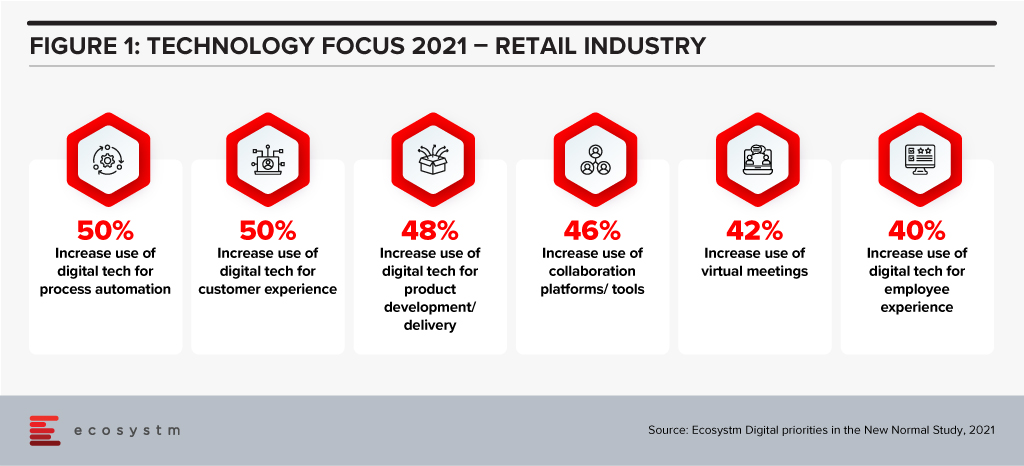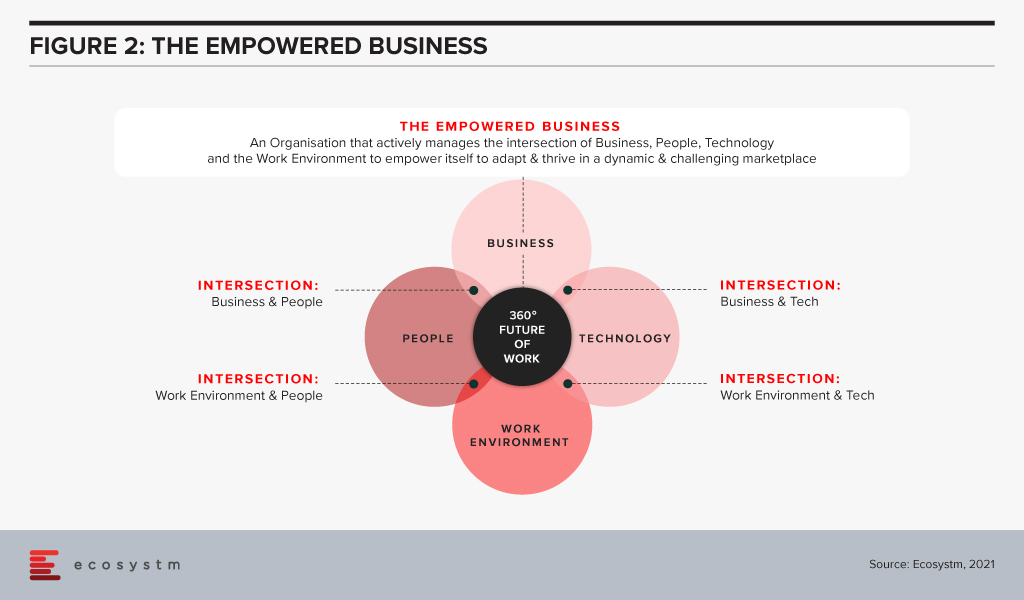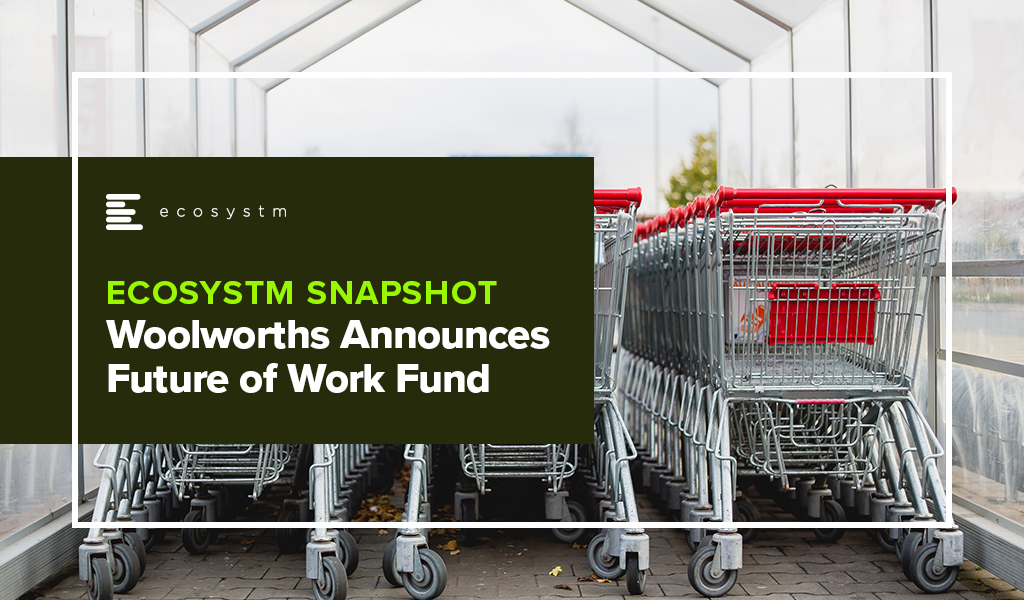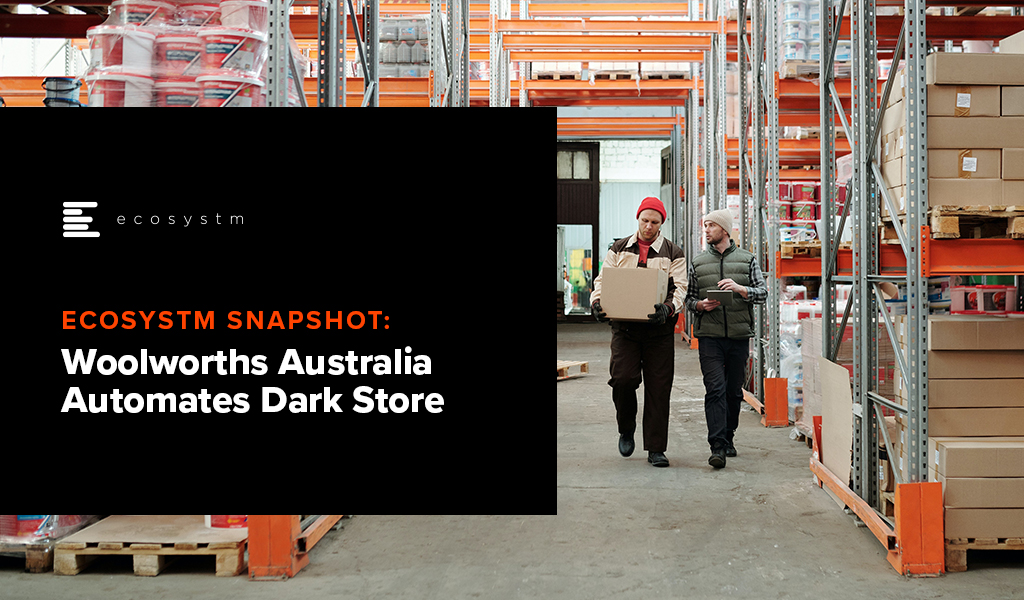2020 was a strange year for retail. Businesses witnessed significant disruption to supply chains, significant swings in demand for products (toilet paper, puzzles, bikes etc!) and then sometimes incredible growth – as disposable income increased as many consumers are no longer taking expensive holidays. Overall, it was a mixed year, with many retailers closing down and others reporting record sales. The grocery sector boomed – with many restaurants and fast-food providers closed, sometimes the supermarkets were some of the few remaining open retailers.
For many retailers, technology has become a key enabler to their transformation, survival and success (Figure 1).

Woolworths, Australia’s largest retailer, operates across the grocery, department store, drinks, and hospitality sectors. They hold a significant market share in most markets that they operate in. The company had a strong 2019/20 (financial year runs from July 2019 to June 2020) with sales up 8% – and in the first half of the 2020/21 financial year, sales were up nearly 11%. But the company is not resting on its laurels – one of its 6 key priorities is to “Accelerate Digital, eCom and convenience for our increasingly connected customers”. This requires more than just a deep technology investment, but a new culture, new skills, and new ways of working.
Woolworths’ Employee Focus
Woolworths has committed to invest AUD 50 million in upskilling and reskilling their employees in areas such as digital, data analytics, machine learning and robotics over the next three years. The move comes as a response to the way the Retail industry has been disrupted and the need to futureproof to stay relevant and successful. The training will be provided through online platforms and through collaborations with key learning institutions.
The supermarket giant is one of Australia’s largest private employers with more than 200,000 employees. Under Woolworths’ ‘Future of Work Fund’ their staff will be trained across supply chain, store operations, and support functions to enhance delivery and decision-making processes. The retailer will also create an online learning platform that will be accessible by Woolworths employees as well as by other retail and service companies to support the ecosystem. Woolworths has plans to upskill their staff in customer service abilities, leadership skills and agile ways of working.
Woolworths’ upskilling program will also support employees who were impacted by Woolworths planned closures of Minchinbury, Yennora, and Mulgrave distribution centres due in 2025.
Woolworths’ Tech Focus
Woolworths has been ramping up their technology investments and having tech-savvy employees will be key to their future success. In October 2020, Woolworths deployed micro automation technology to revamp their eCommerce facility in Melbourne to speed up the fulfilment of online grocery orders, and front and back-end operations. Woolworths also partnered with Dell Technologies in November 2020 to bring together their private and public cloud onto a single platform to improve mission-critical processes, applications and support inventory management operations across its retail stores.
Future of Work
For many years, Ecosystm has been advising our clients to invest more in the skills of the business. Every business will be using more cloud next year than they are this year; they will suffer more cybersecurity incidents; they will use more AI and machine learning; they will automate more processes than are automated today. More of their customer engagements will be digital, and more insight will be required to drive better outcomes for customers and employees. This all needs new skills – or more people trained on skills that some in the business already understand. But too many businesses don’t train in advance – instead waiting for the need and paying external consultants or expensive new hires for their skills. Empowered businesses – ones that are creating a future-ready, agile business – invest in their people, work environment, business processes and technology to create an environment where innovation, transformation and business change are accepted and encouraged (Figure 2).

Empowered businesses can adapt to new challenges, new market conditions and respond to new competitive threats. By taking these steps to upskill and empower their employees, Woolworths is building towards empowering their own business for long term success.
Transform and be better prepared for future disruption, and the ever-changing competitive environment and customer, employee or partner demands in 2021. Download Ecosystm Predicts: The top 5 Future of Work Trends For 2021.

The Retail industry has had to pivot fast this year – having faced early supply chain disruptions, social distancing restrictions due to COVID-19, uncertain demand and falling margins. But the biggest challenge faced was the evolved consumer buying behaviour. Customers were forced to go online, and eCommerce platforms thrived even through the difficult times. Retailers have to continue to cater to this shift in buyer behaviour.
As retailers continue to evolve their capabilities, Woolworths, the Australian chain of grocery stores, recently announced that it has launched new micro automation technology for one of its eCommerce facilities located in Melbourne to speed up the fulfilment of online grocery orders. In 2019 Woolworths had partnered with a US based eGrocery startup, Takeoff Technologies.
Woolworths Automates Dark Store
Woolworths eCommerce floor space spanning across 2,400 sqm is equipped with micro automation technology that allows it to segregate and move groceries from automated storage units that can hold an inventory of 10,000 products and bring them directly to those you pick the orders. The innovative model is designed to make the inventory storage space compact and move high-volume online grocery products to consumers with greater speed, efficiency and accuracy. While grocery products will be picked from automated units, perishables such as fruits, vegetables and meat will continue to be picked up by shop floor workers. Woolworths has employed 50 new employees to fulfil online orders and is expected to fill 100 more vacancies.
“It appears that Woolworths is continuing to use New Zealand to test new technology before introducing it into their much larger Australian market. They are extending the introduction of the technology they first announced for use in their New Zealand online fulfilment centres – the Auckland dark store in November 2019 with a second in Christchurch announced in January 2020,” says Ecosystm Principal Advisor Alan Hesketh. “The Carrum Downs, Melbourne, store will be the first implementation of automation in Australia. Woolworths has announced a third dark store for Wellington in late September 2020 – it would be surprising it was not automated as well.”
Talking about the increase in the use of dark stores, Hesketh sayss, “The challenge with the current model of online stores is the use of expensive retail floor space for picking orders that cannot be used to serve physical customers. With the increase in online sales, accelerated by COVID-19, the volumes are now sufficient in urban areas to make these dark stores profitable. This allows the use of lower-cost, centralised, distribution central space for the dark stores.”
An Example of how Retailers are Pivoting Successfully
Woolworths has been constantly developing their capabilities to improve customer experience and process efficiency. The demand for online products and groceries skyrocketed during COVID-19 which resulted in a temporary shortage of online products and Woolworths had to temporarily stop online ‘Pick up’ and ‘Delivery Now’ orders nationally. To ensure smoother delivery services, they partnered with Sherpa, Drive Yellow, and Uber. Earlier this month, Woolworths announced that six stores in Australia would go completely cashless. Woolworths has around 1,050 stores in Australia which operates on a mix of cash and e-payments.
To keep pace with the online growth, Woolworths automated dark stores will be a potential game changer as they are expected to be able to dispatch online orders five times faster, compared to a standard Woolworths store.
“This increased capacity also means Woolworths’ online offer is less likely to be overwhelmed in the event of another COVID-19 lockdown. This improved access to groceries will be an important benefit to vulnerable members of communities, as well as those customers wary of visiting physical stores,” says Hesketh.
“For their physical stores that support home delivery, Woolworths will now be able to repurpose or release the space used by the pick-and-pack operations. In-store customers will get a better experience without the Woolworths personnel picking orders in the aisles.”




